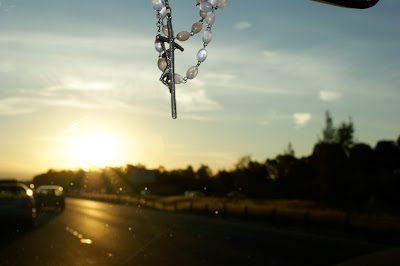"I wish I were Catholic!"
 |
| diongillard/Flickr/CC BY 2.0 Deed |
"Oh, I wish I were Catholic!"
I had not one, not two, but three people express this sentiment to me at the Festival of Faith & Writing, which I attended in early April for the first time after years of having it on my "spiritual, emotional, and creative development" wish list.
As I came to learn, hearing this idea expressed multiple times in this particular setting was notable for a few reasons. First, much like the university hosting it, the Festival has its roots in evangelical Christianity, which I personally have not always found to be a community open to or curious about Catholicism. Second, the Catholic Church as an institution invites so much (often justifiable) criticism that Catholicism as a millennia-old faith tradition can get lost in the shuffle. And third, as Byron Borger of Hearts & Minds Books shared in his presentation on trends within Christian publishing, religious publishing in general has become more ecumenical in recent years, emphasizing spiritual formation, cross-referencing liturgical traditions, and creating "liturgical space" that underscores "the sacramental nature of everything."
That word, "sacramental," echoed a theme from my conversations with the wannabe Catholics. When we delved into what they found so attractive about Catholicism, each person cited sacrament, ritual, and embodiment. They appreciated being taken out of the more cerebral practices of their own denominations (in this case, Methodist, Baptist, and non-denominational) and instead placed in the flow of liturgical movement and narrative. They didn't want to just think about God, they wanted to experience God, and for them, Catholic traditions offered many paths to transcendence.
My most concrete epiphany: Because asking questions about God and grappling with Mystery have always been part of my life and my practice—spurred in large part by my Catholic spiritual groups from childhood through adulthood—I haven't had to deconstruct my religious beliefs as dramatically as many of the people I met at the Festival. After hearing about folks' painful ruptures from their traditions of origin, and their subsequent swings between heartbreak and overwhelm to freedom and possibility, I am grateful I didn't have to sacrifice my community and my religious identity in order to access doubt.
In short, I can have my questioning cake and eat it too. As a result, mine is a gentle faith—one where gestures and recitation can nudge my heart forward, one where the breath of old, beloved songs puts me squarely in my body, one where grace is reliably visible and creatively invited—and I am richer for it.
Prayer #399: Universal
Meant for sacrament,
enriched by ritual,
embodiment imbues
us all with that most catholic charism,
grace,
to remind us that we are
already whole.
Amen.